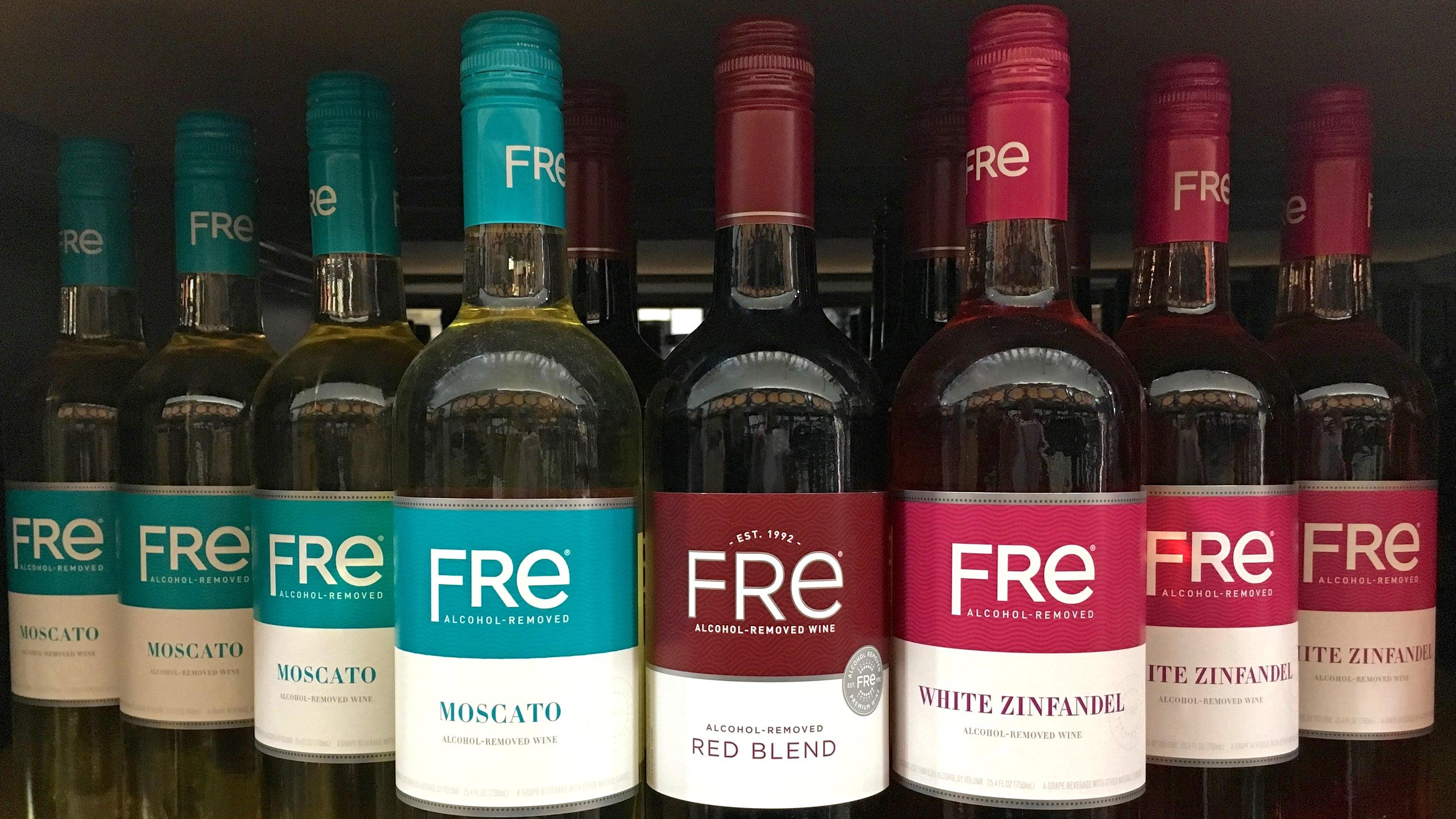No, Non-Alcoholic Wine Isn't Just Grape Juice
Proper NA wines go through a process that make them taste a world away from Welch's.
When I was a kid, every year on New Year's Eve my parents would bring home bottles of Welch's sparkling grape juice for my siblings and me to pour into fancy glasses that we'd clink together at midnight, pretending to be grown-ups at a sophisticated party. This must be exactly what champagne tastes like, I'd think to myself, both impressed with myself for having such an adult palate and also slightly disappointed that there wasn't something more magical about champagne. Of course, years later I learned what that magic was: alcohol. But it's not just that. There's a complexity of flavor in wine that isn't present in a glass of grape juice, and that is mostly built through the fermentation process.
I first considered the concept of non-alcoholic wine while watching The Real Housewives of New York. In an effort to remain sober after multiple drunken escapades were captured on the show, "Countess" Luann de Lesseps created her own non-alcoholic wine, Fosé Rosé. Several of her castmates sipped on this sparkling rosé, claiming that it tasted like the real thing. I sat at home, incredulous, imagining that any sparkling wine without alcohol must simply taste like the Welch's of my youth. But now, on the cusp of a burgeoning NA wine industry takeover, I've learned there's so much more to fake rosé than I thought.
How non-alcoholic wine is made
In order to be considered wine, the grapes used in the beverage must go through a vinification process, whether the wine will contain any alcohol or not, according to VinePair. Otherwise, you're simply drinking juice. The vinification process involves everything from the harvesting and pressing of the grapes to the fermenting and aging, all of which add layers of flavor from sugars in the fermentation and other notes from whichever barrels the wine is aged in. When creating non-alcoholic wine, there's the extra step of removing the alcohol, which might sound straightforward, but it's a process that's easier said than done.
There are a few different ways to do it. The most common method is vacuum distillation, a process that essentially heats up the wine until the alcohol evaporates. This is the same science that explains why using cooking wine in a meal won't get you drunk—but cooking wine is exposed to enough heat that it reduces down, whereas NA wine is only heated enough to remove the alcohol. That removed ethanol can then be captured and used in other products.
Another way to remove the alcohol from NA wine involves reverse osmosis, though this system requires a great amount of water and is considered to be less eco-friendly. And according to VinePair, Giesen Wines, based in New Zealand's Marlborough region, uses a technique similar to the one used in the perfume industry to remove alcohol, then reintroduces specific aromas into the alcohol-free wine to more accurately replicate the flavors of sauvignon blancs and rosés.
Why drinkers are reaching for NA wine
Non-alcoholic wine is the natural next step in a marketplace that's quickly embracing NA beers and other spirits. As we previously reported, that's in part because of Gen Z's aversion to drinking—that generation drinks 20% less per capita than millennials. And there's obviously a specific consumer base that NA wine is appealing to, because NPR reports that consumption of non-alcoholic wines across the global market has grown by 24% in the last year alone.
NPR reporter Rebecca Rosman took a look at the non-alcoholic wine industry in France, where there is more pushback to change the formula because of how important wine is to the country's way of being. But it's that dedication to the cultural importance of wine that makes an even stronger case for more non-alcoholic wineries to work on perfecting the formula and taste.
"In France, we always use the fact that wine is not about alcohol; it's about culture, about gastronomy," one person tells Rosman. And why shouldn't non-drinkers be able to indulge in that same experience?
When Allison Robicelli reviewed Grüvi non-alcoholic wine last year, she offered up another suggestion: use these wines as mixers for your non-alcoholic spirits. Mixing and matching alcoholic wines, beers, and liquors to create new concoctions is a dangerous game that can lead to blackouts and massive hangovers. But when you take alcohol out of the equation, it's easier to get creative and create the mocktail of your dreams.
If you'd like to try these products for yourself, some other brands focusing on NA wines include:
- Fre Wines
- Surely
- Three Spirit's Blurred Vines
Here's a lesson we learned from Countess de Lesseps herself: If you bring a non-alcoholic wine to a restaurant, you should still expect to pay a corkage fee, even if it's your own Fosé brand. Hopefully, though, bars and restaurants will soon jump on the NA wine bandwagon, offering up something more than mere grape juice for everyone who wants it.
